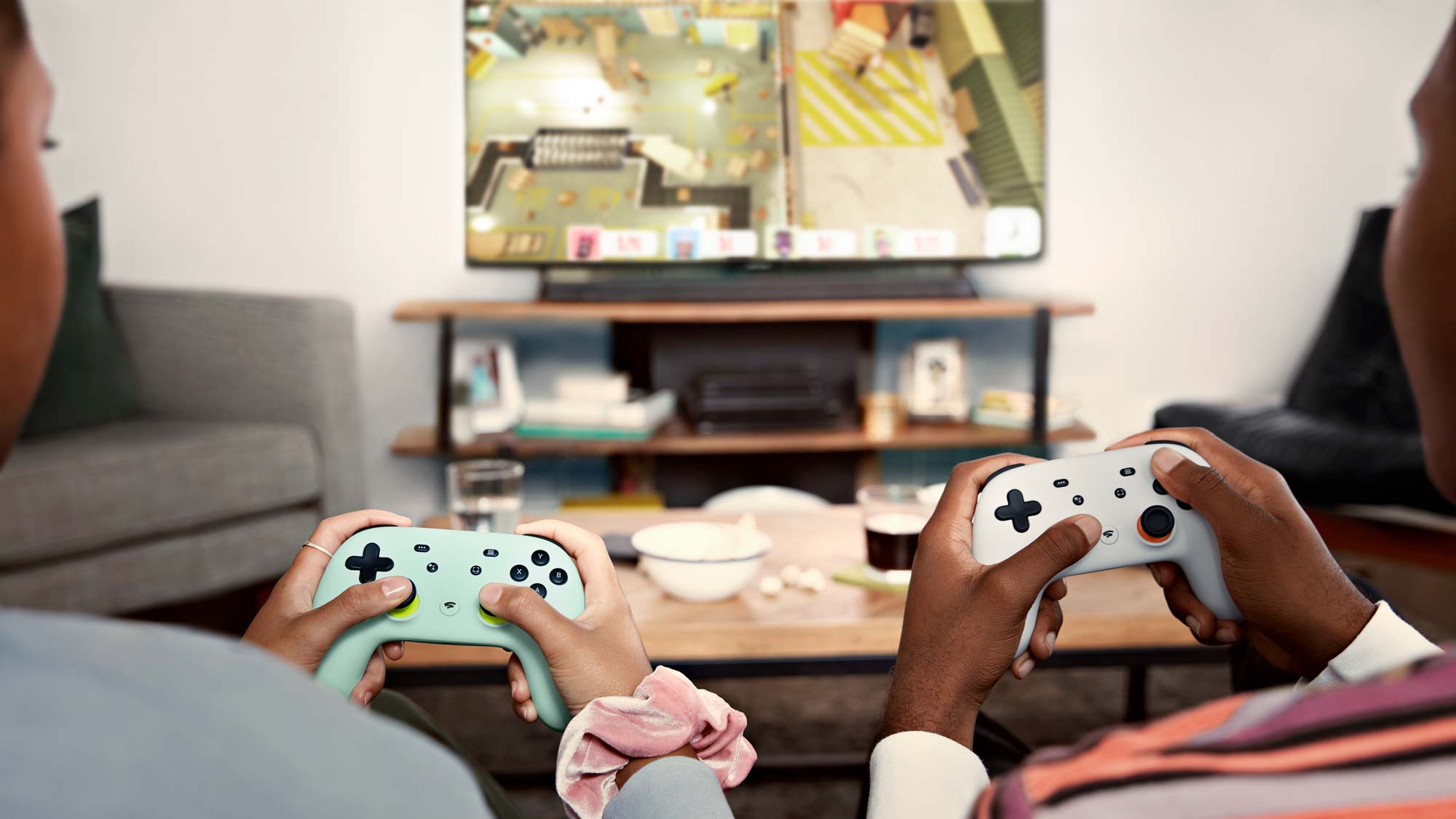
Samsung is adding built-in cloud gaming integration to its TVs, becoming one of the latest TV makers to do so. Unveiled at CES 2022, Samsung Gaming Hub will support both Google Stadia, Utomik and Nvidia GeForce Now, meaning that TV buyers will be able to jump into console-quality gaming with nothing but an internet connection. Samsung Gaming Hub will only be available through select Samsung 2022 TVs, so owners of current Samsung TVs are out of luck.
Samsung is hardly the first TV maker to go this route. LG added both GeForce Now and Stadia late last year, Fire TVs ship with Amazon Luna, and both TCL and Hisense have brought Tencent Start to Chinese markets. Sony Bravia TVs did have PlayStation Now for a period of time, though the feature was removed in 2017. But considering that new Sony televisions ship with Google TV, Stadia support will probably come soon.
Barring any ISP data caps, this means that 2022 will bring about the gaming TV future that analysts had predicted. Just a month ago, Jesse Divnich, vice president of research and strategy at Interpret, told USA Today that console game "will likely be known as television gaming or even large-screen gaming" in a decade's time.
"Cloud streaming will almost undoubtedly reach a point where it can provide a seamless experience across any type of game," Divnich added. "There will always be traditionalists that prefer a physical device in their house, but most consumers will adopt cloud streaming as a means of accessing games."
We're still a ways away from televisions being viewed as de facto consoles. Game streaming requires a tremendous amount of bandwidth and fast pings. Much of the U.S. lacks high speed internet, and a few ISPs, such as Xfinity, place a 1.2TB data cap on consumers.
That cap is not insiginificant. According to Android Authority, one hour of 4K game streaming via Google Stadia eats up 25GBs of data.
While game streaming isn't at the level that Divnich predicts will be the case eight years from now, it is a great option for those not wanting to shell out $500 for a PS5— if anyone can even find one, as PS5 stocks remain extremely limited more than a year out from the console's launch.
Sign up to get the BEST of Tom's Guide direct to your inbox.
Get instant access to breaking news, the hottest reviews, great deals and helpful tips.
For those wanting to play the best games of 2021, such as Marvel's Guardians of the Galaxy, Resident Evil Village or Hitman 3, game streaming is a near-frictionless way to jump in. And for most consumers, it's that friction that prevents them from jumping into gaming in the first place.
I remember during one of my graduate school courses, our professor admitted the reason she never paid too much attention to gaming was because it required an up-front console or PC purchase. As someone who focused more on the film or literature side of entertainment reviews, I understand why she may not have wanted to put too much effort in hunting down a gaming system. But if all it required was a controller and the press of a television remote, it's possible that she, as well as many others, could give high quality AAA games a try. And that prospect alone should make everyone excited for what game streaming could mean for the larger entertainment market.
Suddenly, game creators will not be limited to consoles or PCs. Their potential pool of consumers will expand to anyone who owns a modern television. Sure, that may mean extra shovelware being pumped to Samsung TVs, but it also means that a game that may have only been accessible to 100 million console owners could now be accessible to 1 billion. If game creators can tap into that greater market, then games can become all the more ambitious or diverse.
Imad is currently Senior Google and Internet Culture reporter for CNET, but until recently was News Editor at Tom's Guide. Hailing from Texas, Imad started his journalism career in 2013 and has amassed bylines with the New York Times, the Washington Post, ESPN, Wired and Men's Health Magazine, among others. Outside of work, you can find him sitting blankly in front of a Word document trying desperately to write the first pages of a new book.

